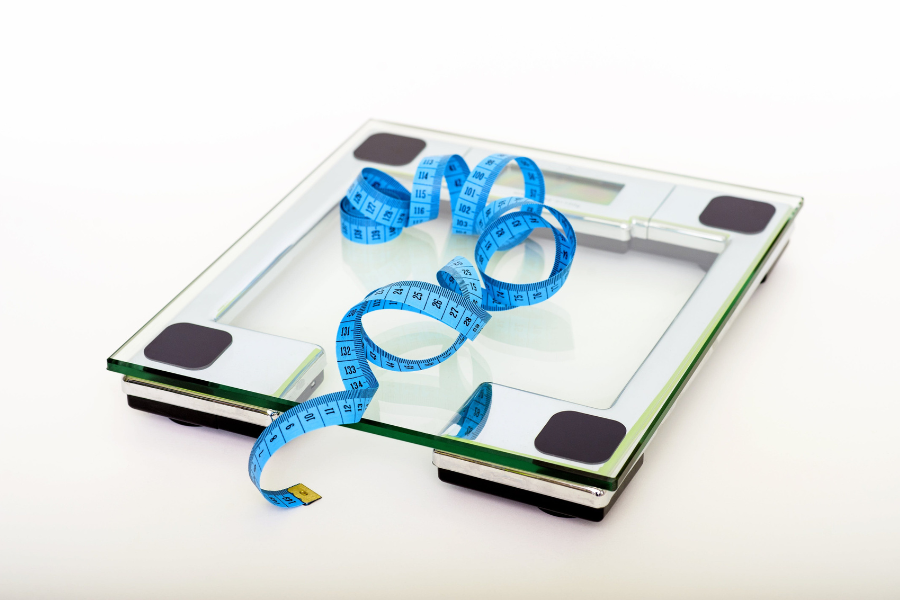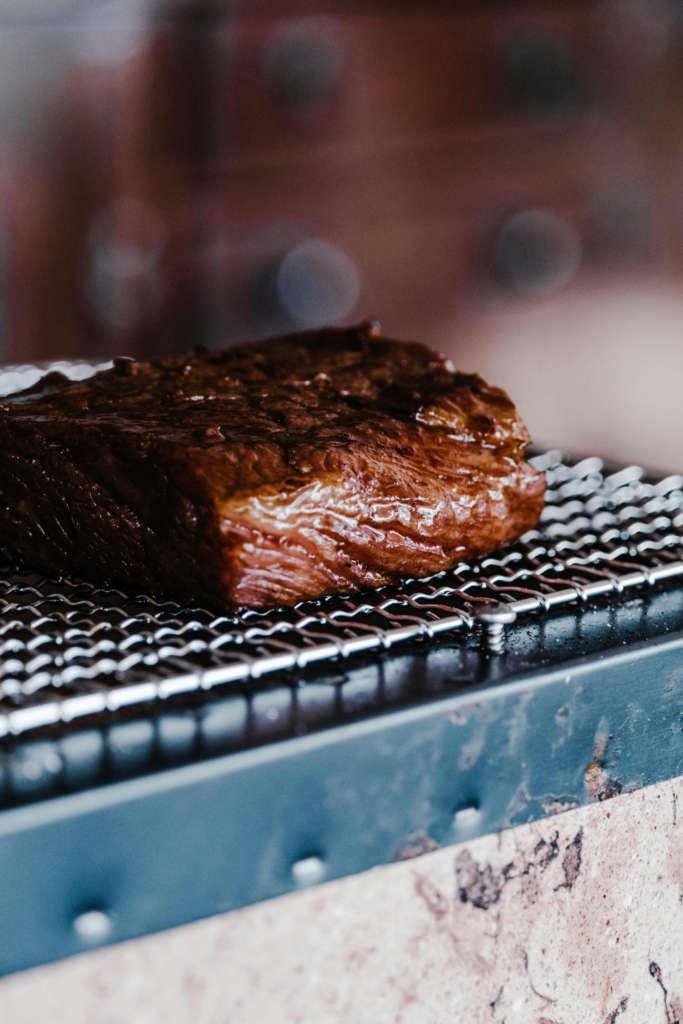Fat loss is an easy science once you know how it works. Too many people in the health and fitness community try to make fat loss a harder science than it truly is. Reason being, there is profitability involved in misinformation.

When you have people writing books about how a certain diet has been shown to cause weight loss, people will swear that’s how weight loss science works.
When you have people conducting controlled trials about how avoiding certain foods has been shown to reduce belly fat, people will take it as gospel.
Avoiding foods you love and restricting yourself to a particular diet is unnecessary. This article will address what your top 7 priorities are for a successful fat loss plan.
1. Maintain Calorie Deficit
Establishing calorie deficit is top priority number 1. Without a calorie deficit, nothing else you do on this list will matter as far as losing fat.
In other words, you need to be taking in less food energy than what your body expends in a day.
For instance, if it takes 2,700 calories a day to maintain your current bodyweight, you need to consume 2,200 calories a day to lose 1 pound of fat per week.
This can also be taught of as a 3,500-calorie weekly deficit for losing 1 pound of fat.
The size of the deficit is going to depend on individual factors such as
- Starting Body Fat Percentage
- Starting Bodyweight
- Height
- Gender
- Age
- Training Experience
- Activity Level
If you want to know what your maintenance calories are, you can click here to use this effective calculator tool.
People with significantly more fat to lose can handle large energy deficits. They can lose 2-3 pounds of fat per week without having to worry about losing lean body mass or messing up their hormones.
People who are lean but are trying to lose stubborn fat around certain areas should go for smaller deficits. That way, they can better maintain muscle and mange hormonal health.
2. Have an Effective Strength Training Program

Employing a highly effective strength training program is priority number 2. Strength training ensures that every pound you drop on the scale is either water or fat.
If you lose 20lbs by just reducing calories and doing lots of cardio, you can possibly lose half muscle and half fat. That is a terrible situation for your metabolism in the long-term.
Cardio is not even necessary for fat loss or weight loss.
A muscle building program prevents your metabolism from slowing down significantly as you drop weight. You need to have a plan as to how you are going to overload major compound exercises over time.
You also need to know when to rotate exercises as you plateau on strength over time.
A whole lot of exercises, sets, and repetitions are not needed in your workout routine, you just need enough to trigger strength and muscle growth.
If you want to learn more about optimal strength training, check out this article The Best Number of Exercises, Sets, and Reps Per Workout.
3. Get in Sufficient Protein

Proper protein intake is your number 3 top priority for fat loss. Sufficient protein consumption will support muscle growth or muscle retention in a caloric deficit. Protein is also your most satiating macro-nutrient.
If you’re not eating enough protein, you will have a harder time staying full and managing cravings.
People typically have 1 of 2 problems when it comes to protein. They either under consume it or over-consume it. Protein is your most filling macro until you get enough of it. After that, you are better off allocating the rest of your calories towards fats and carbs.
It is commonly believed that you need 1 gram of protein per pound of bodyweight. This is not true. How much protein you need depends on how much lean body mass you have.
Leaner individuals only need about 0.7-0.8 grams of protein per pound of bodyweight based on the research.
Individuals who carry significantly more body fat can get away with 0.6 grams of protein per pound of bodyweight.
The high fat mass doesn’t increase their bodies’ demand for protein. People in this category can lose fat weight just by virtue of cutting their calories to a large degree and performing weight training.
As you integrate more protein into your diet, you want to focus on foods where protein is the dominant macro. Just because a food may have some supplemental protein, doesn’t mean it’s a high-protein food.
If you want more information about protein rich foods, check out this article 11 Best Sources of Protein for Promoting Fat Loss.
4. Practice Intermittent Fasting Daily
Intermittent fasting is priority number 4 for fat loss. Just to be clear, you don’t have to practice intermittent fasting to lose fat, but that doesn’t mean you shouldn’t do it. IF makes it easier for you to control your caloric consumption and stay satiated longer in an energy deficit.
IF is also a lot of fun, because you can eat larger meals that are high in calories and still maintain a deficit. You can even integrate dessert into your plan.
This idea of having to eat multiple small meals throughout the day to “keep the metabolism running” is absolute foolishness. This is not how humans evolved over time. We evolved to be very efficient with our fat storage.
Our hunter gathers ancestors woke up in the morning and started being productive. They didn’t eat “breakfast”. They had some fruit late in the afternoon and feasted at night. This made it very easy for them to stay lean.
Another problem we have in modern day society other than eating too much is eating too frequently. If you are eating too often, you are not giving your blood sugar levels time to stabilize. Also, you are not giving your cells time to repair and rejuvenate,
There should be a 12-18 hour daily fasting window between your last meal of the day and your first meal the next day. This method of fasting would be the most optimal for health and fitness lifestyle.
With Intermittent fasting, you will see amazing benefits as far as
- Increase fat burning.
- More energy
- Better work productivity
- Enhanced cognition
- An increase in Human Growth Hormone or HGH
- Reduction in Insulin levels
- Cancer-fighting benefits
Intermittent fasting is an incredible fat loss tool, but please do not take it as fat loss science. You still need to be tracking your calories and making sure you’re at a deficit by the end of the day.
If you want more information about the benefits of IF, check out this article Intermittent Fasting Windows.
5. Optimize for Satiety
Priority number 5 is to optimize for satiation. You do that by building your diet around foods that make it easy to eat less calories. Don’t stress about trying to eat the healthiest foods in the world.
Truth is you’re not going to find a food that is perfectly healthy. There is a new study coming out practically every week demonizing a particular food, even if that food is generally viewed as healthy.
The best thing you can do is determine what foods make it easy for you to manage an energy deficit without having a desire to:
- Binge eat.
- Snack all day
- Crave sugar constantly
If your protein needs are met and you’re getting a balance of fats and carbs, you will be reasonably satiated.
Please for the love of God stop demonizing carbohydrates. They are great for fat loss if you are eating micro-nutrient rich carbs.
For more information about quality sources of carbs, check out this article 9 Best Carbohydrate Foods for Satiety and Fat Loss.
You can still have some junk carbs in your diet, but it should be the minority of your calories. You can even have junk carbs every day if you want and still lean down.
6. Do More Walking

Walking is top priority number 6 for fat loss. It is the easiest exercise you can do on a consistent basis. It is practical. In certain routine situations, you don’t have a choice but to walk.
With walking, you can burn a moderate amount of calories without having to raise your appetite, deplete muscle glycogen, lose your breath, or use a lot of willpower.
Ideally, we should be walking for 1 hour a day which equates to about 7,000 steps. If you walk at a brisk pace, you can achieve 10,000 steps in an hour.
You don’t need to do cardio or high intensity interval training unless you’re an athlete that can use the conditioning benefits.
You just need to do more structured walking. Don’t think you have to do an hour long walk all in one session. It would be great if you could do it all in one session, but you can break it up into:
- 15-minute walks 4x a day
- 20-minute walks 3x a day
- 30-minute walks 2x a day
Not enough great things can be said about walking. If you want to learn more about the amazing benefits of walking, check out this article Why Walking is the Best Exercise for Long-Term Fat Loss.
7. Get Good Sleep
Top Priority number 7 is sleeping. You would think most people would view this as a priority for fat loss, but they don’t. Sleep is important for functional hormones. If you are not getting adequate sleep, you may have trouble managing ghrelin and cortisol.
Ghrelin is the hormone that signals appetite. Studies have shown that lack of sleep can lead to an increase in appetite. If you can’t manage your appetite, you can’t manage a calorie deficit.
Cortisol is your stress hormone. Cortisol is not inherently bad, but too much of it can lead to water retention and poor training performance.
Human Growth Hormone can also decline if you have too many nights of bad sleep. This is your fitness hormone. It helps with muscle retention and pure fat loss.
Studies have shown that if you sleep 5 hours or less a night, you can lose lean body mass in a caloric deficit even if you are correctly doing the other 6 things on this list.
Ideally, we should be getting at least 7-9 hours of sleep per night. This amount of sleep would optimize for hormonal functioning and pure fat loss.
If you want to learn more about hormones, check out this article 7 Hormones You Must Manage on a Weight Loss Program.
Conclusion
The top 7 priorities for a successful fat loss plan have been laid out for you in this article. Do not over-complicate this fat loss stuff. Just make sure you are:
- In a calorie deficit
- Strength training a few days a week.
- Eating enough protein
- Intermittent Fasting to control caloric intake.
- Eating foods that promote satiety.
- Walking significantly more
- Sleeping to maintain training performance and hormonal health.
If you do these 7 things, you cannot fail.
